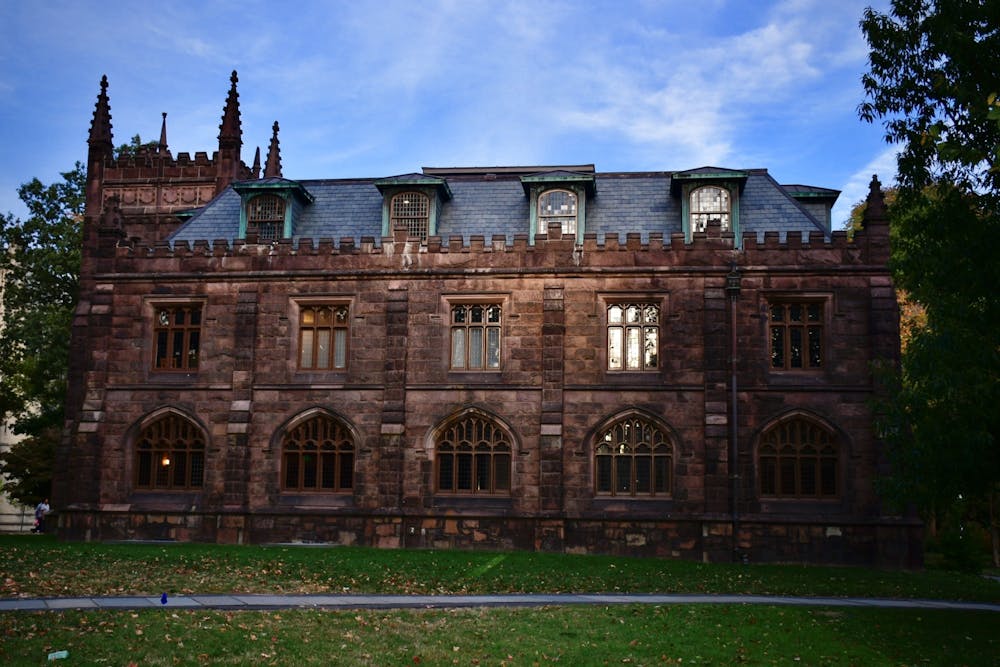The University Muslim Life Program’s weekly prayer service was interrupted on Friday, April 17 by “zoombombers” who crashed the meeting with offensive slurs and pornographic images.
In the face of COVID-19, the Muslim Life Program (MLP) moved their Friday afternoon Jummah services online, allowing nearly 200 students, alumni families, and community members to join through a public Zoom link each week.
The 1 p.m. service proceeded as usual for its first half. But soon, multiple attendees began to make disruptive noises. While to some the noises were indiscernible, Fawaz Ahmad ’22, Muslim Student Association president and co-host of the meeting, recognized them as racial and Islamophobic slurs.
The zoombombers also played a song featured in anti-Muslim memes about ISIS, according to Ahmad.
To combat the attack, Ahmad muted the accounts, but the hijackers managed to un-mute themselves. He then switched the meeting’s settings to a forced mute, which caused the zoombombers to move to the chat feature, where they began writing slurs. Ahmad soon turned off the chat feature as well.
Undeterred, the hijackers then displayed pornographic material through their video icons. Imam Sohaib Sultan’s video feed was set as participants’ main screen, but viewers using the gallery view might have been forced to see the images.
Flustered, Ahmad tried to turn off everyone’s video feeds except Sultan’s.
“I was so disturbed myself,” he said. “I didn't want anybody else to have to see what I had seen.”

As more and more people were exposed to the images, participants’ faces filled with confusion and disgust, according to Abdelhamid Arbab ’23, another student on the Zoom.
“Especially people who were older were very confused as to what was going on,” he said.
Ahmad soon decided to simply end the call. First, he attempted to terminate the Zoom himself, but instead got locked out of the continuing meeting. Ahmad called Sultan, and together they ended the call, beginning a new password-protected call minutes later.
Though some participants left permanently, Sultan estimates that about 100 congregants returned. In the last portion of the service, the group said a prayer for the people who hijacked them.

“I think, in the face of hatred like this,” said Ahmad, “it’s really important to stand together as a community and continue doing what we do best.”
In his mind, there’s no doubt the incident was a targeted anti-Islam attack.
“It wasn’t just generic evil swearing or whatever at people. There were pointed disgusting things about God or about Islam,” he said. “Just thinking that there’s people that are so disturbed to actually be propelled to do stuff like this in the first place was just ... a wake up call.”
The MLP plans to file a formal complaint with the University. Sultan said he finds hope in his community’s resilience.
“This is the [story] of all of the great prophets that we read about in scripture — that at every turn, they were met with roadblocks and what was required of them was a great deal of patience and perseverance, and a great deal of intelligence and steadfastness,” Sultan said.
“One should only expect that when you set forth in the world to do something good, to promote something that is kind, to gather people together for the sake of goodness and godliness, that you are going to come up against obstacles,” he added.
Zoombombing, the phenomenon in which people disrupt Zoom meetings with offensive comments or images, has been identified as an increasingly pernicious problem. In light of the trend and among other security concerns, various entities have recently banned the use of Zoom conferencing for their employees or members, including the New York City Department of Education, the government of Taiwan, and Elon Musk’s SpaceX.
In Arbab’s view, zoombombing presents unique challenges for certain communities.
“Especially minority communities are being affected in their gatherings and their ability to congregate during this time,” he said.
Sultan said that securing their meetings will now be a priority, and that there will be a big “learning curve” as they work to achieve that, given the novelty of the situation. Learning from the incident, Ahmad plans to institute a password and waiting room for every meeting in order to make them more secure.
Reflecting on the experience, Ahmad said he finds Zoom’s security settings disjointed. He hopes the corporation will work to make the default settings more secure and security settings easier to navigate on the user interface.
Sultan, however, emphasized the benefits of using Zoom.
According to Sultan, Zoom has “also been a really great forum, by which we’ve been able to connect with alumni who now live in many different parts of the country and the world.”
Sultan’s final message, to students and congregants?
“Don’t get angry. Get busy.”








